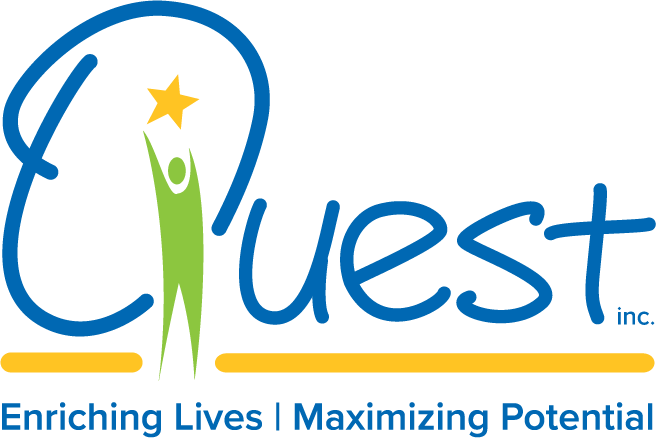Change lives!
Your contribution makes an immediate difference in the lives of children and adults right here in our community.
Quest, Inc. relies on the support of grants, corporate and individual gifts, and donations of time to continue to serve individuals in Central Florida with developmental disabilities.
Give Now
If you are interested in monthly giving, please click here.
If you need to make a payment for services, please use our Payment Center.
Contact Quest Philanthropy
To discuss a gift, learn more about our programs or schedule a tour in Orlando or Tampa, please email our Philanthropy Department.
Quest is a non-profit organization qualifying under Section 501(c)(3) of the Internal Revenue Code, and your donation will be tax deductible to the fullest extent allowed by law.
A copy of Quest, Inc.’s official registration #CH544 and financial information may be obtained from the Division of Consumer Services by calling toll-free (800-435-7352) within the state. Registration does not imply endorsement, approval or recommendation by the state.

